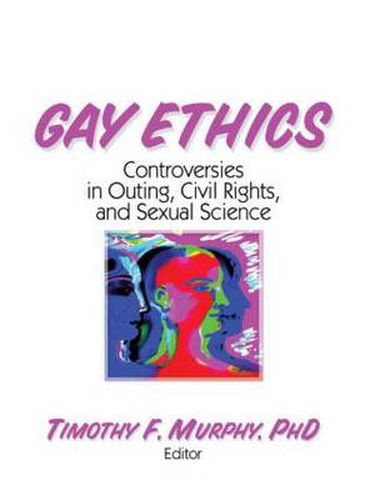Readings Newsletter
Become a Readings Member to make your shopping experience even easier.
Sign in or sign up for free!
You’re not far away from qualifying for FREE standard shipping within Australia
You’ve qualified for FREE standard shipping within Australia
The cart is loading…






Gay Ethics is an anthology that addresses ethical questions involving key moral issues of today–sexual morality, outing, gay and lesbian marriages, military service, anti-discrimination laws, affirmative action policies, the moral significance of sexual orientation research, and the legacy of homophobia in health care. It focuses on these issues within the social context of the lives of gay men and lesbians and makes evident the ways in which ethics can and should be reclaimed to pursue the moral good for gay men and lesbians.Gay Ethics is a timely book that illustrates the inadequacies of various moral arguments used in regard to homosexuality. This book reaches a new awareness for the standing and treatment of gay men and lesbians in society by moving beyond conventional philosophical analyses that focus exclusively on the morality of specific kinds of sexual acts, the nature of perversion, or the cogency of scientific accounts of the origins of homoeroticism. It raises pertinent questions about the meaning of sexuality for private and public life, civics, and science.
Some of the issues covered:
Sexual Morality
Outing
Same-Sex Marriage
Military Service
Anti-Discrimination Laws
Affirmative Action Policy
The Scientific Study of Sexual Orientation
Bias in Psychoanalysis
Homophobia in Health CareGay Ethics presents a wide range of perspectives but remains united in the common purpose of illuminating moral arguments and social policies as they involve homosexuality. The chapters challenge social oppression in the military, civil rights, and the social conventions observed among gay men and lesbians themselves. This book is applicable to a broad range of academics working in gay and lesbian studies and because of its current content, is of interest to an educated lay public. It will be a standard reference point for future discussion of the matters it addresses.
$9.00 standard shipping within Australia
FREE standard shipping within Australia for orders over $100.00
Express & International shipping calculated at checkout
Stock availability can be subject to change without notice. We recommend calling the shop or contacting our online team to check availability of low stock items. Please see our Shopping Online page for more details.
Gay Ethics is an anthology that addresses ethical questions involving key moral issues of today–sexual morality, outing, gay and lesbian marriages, military service, anti-discrimination laws, affirmative action policies, the moral significance of sexual orientation research, and the legacy of homophobia in health care. It focuses on these issues within the social context of the lives of gay men and lesbians and makes evident the ways in which ethics can and should be reclaimed to pursue the moral good for gay men and lesbians.Gay Ethics is a timely book that illustrates the inadequacies of various moral arguments used in regard to homosexuality. This book reaches a new awareness for the standing and treatment of gay men and lesbians in society by moving beyond conventional philosophical analyses that focus exclusively on the morality of specific kinds of sexual acts, the nature of perversion, or the cogency of scientific accounts of the origins of homoeroticism. It raises pertinent questions about the meaning of sexuality for private and public life, civics, and science.
Some of the issues covered:
Sexual Morality
Outing
Same-Sex Marriage
Military Service
Anti-Discrimination Laws
Affirmative Action Policy
The Scientific Study of Sexual Orientation
Bias in Psychoanalysis
Homophobia in Health CareGay Ethics presents a wide range of perspectives but remains united in the common purpose of illuminating moral arguments and social policies as they involve homosexuality. The chapters challenge social oppression in the military, civil rights, and the social conventions observed among gay men and lesbians themselves. This book is applicable to a broad range of academics working in gay and lesbian studies and because of its current content, is of interest to an educated lay public. It will be a standard reference point for future discussion of the matters it addresses.